DATAMOST
Sustainable mobility requires a successful transformation of passenger and commercial transport that reconciles transportation with environmental and climate goals. To achieve this goal, state-of-the-art scientific methods, data, and models are required and must be used together. To date the overwhelming complexity of these methods, data, and models, has made it difficult to present clear and understandable research results for this transformation of the transportation sector.
To address this problem, the research project "Data and Model-based Solutions for the Transformation of Mobility" (DATAMOST) combines expertise from all areas of DLR and visualizes state-of-the-art research results in an interactive mobility laboratory. The development of a mobility lab in a physical location will allow stakeholders from industry and society to interactively experience and understand DLR's research results. The mobility lab also supports open research and the evaluation of transportation solutions by DLR.
Goals and expected results
In DATAMOST we will develop the necessary interfaces between diverse DLR research areas in order to design and research solutions for the transformation of the mobility sector. This will be done by linking existing models, using the latest data, and applying innovative methods of data analysis (e.g., machine learning, artificial intelligence).
The project expands transport research at DLR to systemically link a wide variety of research results and to visualize them in an overarching, intuitive, and comprehensible manner. The mobility laboratory is thus intended to increase the general comprehensibility of the research areas and the results for interested parties from society, industry, politics, and the general public. The overarching goals are as follows:
- Expand DLR's expertise and methodological competence for the development of systemic solutions in transportation research and to increase our visibility among stakeholders from industry and politics, and
- Create user-friendly and intelligent solution tools with the mobility lab to support assessment and decision-making by partners from industry and society.
A central objective of the project is the development of research results for the evaluation of mobility and transport solutions. This includes testing the effectiveness and impact of the solutions to be evaluated for future mobility. The central innovative element of the mobility laboratory lies in the integration of different data sources, as well as proven and novel methods to build digital twins of mobility and transport solutions. For this purpose, quantitative methods for data and information retrieval, as well as qualitative methods for the development of creative solutions for the challenges in the transportation system are applied.
The mobility laboratory will generate added value in the evaluation and at the same time becomes a data provider itself. In other words, it generates a backflow of data and the resulting findings. The models used are thereby verified and at the same time refined. In addition, the transferability of the results into real applications is done, whereby the market connectivity of the mobility laboratory is implimented by demand-oriented and resilient results.
In order to achieve these goals, the project is divided into three target areas, to each of which the sub-projects of DATAMOST are assigned:
- Development of the data space (TP 1000 Data for the mobility lab)
- Integration of the model world (TP 2000 Models for the mobility lab, TP 4000 Digital twins)
- Contemplation of the virtual future (TP 3000 Realization of the mobility lab).
In addition, the project is divided into two phases. All three activity fields will be linked in the first phase to demonstrate performance. In the second phase, the findings of the evaluation will be incorporated for improvement and feedback from the methods used will be built in across the individual parts of the mobility lab.
Timeline
01.01.2022 - 31.12.2023 (Phase 1)
01.01.2024 – 31.12.2025 (possible Phase 2)
Participating institutes
Institut für Verkehrsforschung (Lead)
Institut für den Schutz terrestrischer Infrastrukturen
Deutsches Fernerkundungsdatenzentrum
Institut Maritime Energiesysteme
Institut für Methodik der Fernerkundung
Institut für Physik der Atmosphäre
Institut für Softwaretechnologie
Institut für Verkehrssystemtechnik
Institut für vernetzte Energiesysteme
Institut für Verbrennungstechnik
